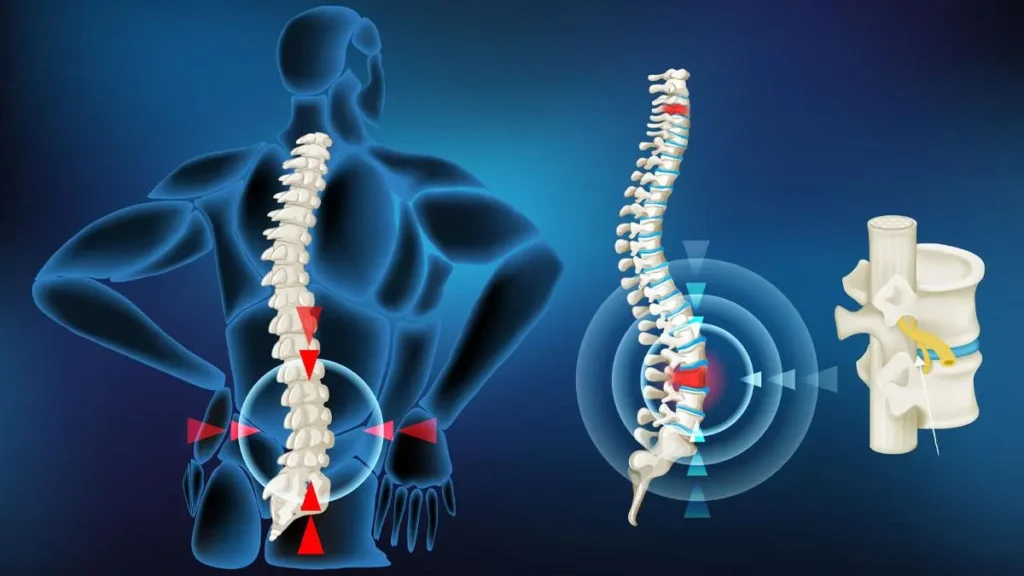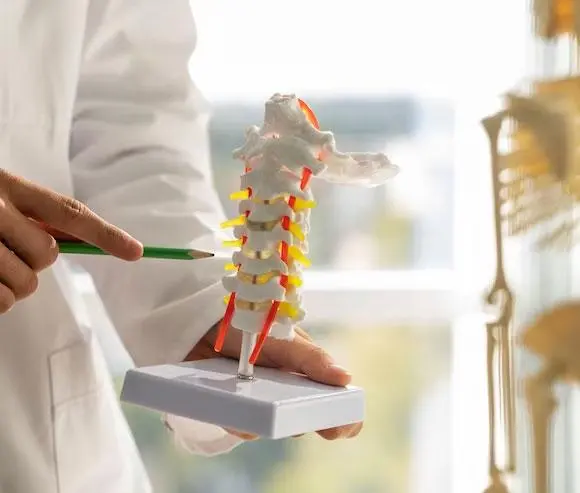
5 Signs You Should See an Orthopedic Spine Specialist
Back pain is just the worst, am I right? It can really put a pause on your day-to-day life and leave you feeling pretty miserable. Sometimes it’s just a minor annoyance that goes away with a little rest and painkiller. But there are times when that nagging back pain is actually trying to tell you something more serious is going on. If you’re dealing with persistent back pain that just won’t quit, it might be time you should make an appointment with a Orthopedic Spine Specialist
Here are five signs that your back pain warrants a trip to the spine specialist:
Table of Contents
ToggleYour back pain just won't quit:
If your back pain has been sticking around for more than a couple weeks with no relief, that’s a huge red flag. Sure, we all get the occasional twinge that goes away after some R&R (rest and relaxation). But lingering back pain that won’t quit could signal something more serious brewing under the surface. An expert set of eyes is needed to diagnose and treat the underlying issue – whether it’s a herniated disc, spinal stenosis, or something else entirely.
You're experiencing weird nerve symptoms:
Back pain that shoots down into your arms, legs, hands or feet with tingling, numbness or weakness is definitely not normal. Those zinging pains are likely caused by a pinched nerve or spinal cord issue. I know those electric shocks are no fun, but they need to be properly evaluated ASAP before any permanent nerve damage occurs.
Your mobility is seriously limited:
If bending over to tie your shoes or just walking across the room is becoming an extreme challenge, listen to your body’s screams. A spine specialist can get to the bottom of what’s causing your severely limited mobility and range of motion. Loss of strength, balance issues, or feeling like you might topple over are also major warning signs that your back needs expert care.
Back Pain from an Injury or Accident:
Even if your back pain seems minor after a fall, car accident, sports injury, or other trauma, you should get it treated. Because many spinal misalignments, hairline fractures and soft tissue injuries can easily be missed without the right tests and an experienced eye.
If Painkillers Are Your New Best Friend:
I get it, pain killers can be a lifesaver when back pain strikes. But if you’re living on a daily dose of pain meds just to function, that’s not a sustainable long-term solution. Spine specialists have access to a full arsenal of treatments – from physical therapy to injections to cutting-edge surgeries – that can actually fix what’s making your back throw a fit.

Conclusion:
So, if you’re dealing with any of the signs we discussed, don’t ignore them and schedule an appointment at Hale Clinics, which has one of the Best Orthopedic surgeon in Mohali.
Don’t keep suffering through it alone! Trust me, a healthier, more mobile you is just an appointment away.
FAQs:
- When should I see a spine specialist for back pain?
Ans. You should consider seeing a spine specialist if your back pain persists for more than a couple of weeks without relief, if you experience numbness or tingling in your arms or legs, if your mobility is severely limited, or if your back pain is due to an injury or accident.
- What conditions can a spine specialist treat?
Ans. Spine specialists can diagnose and treat a variety of conditions, including herniated discs, spinal stenosis, pinched nerves, spinal misalignments, fractures, and soft tissue injuries.
- What treatments do spine specialists offer?
Ans. Spine specialists have access to a range of treatments, such as physical therapy, injections, and surgical procedures. They can develop a comprehensive treatment plan tailored to your specific condition and needs.
- Is it safe to take painkillers long-term for back pain?
Ans. While painkillers can provide temporary relief, relying on them as a long-term solution for back pain is not recommended. Spine specialists can address the underlying cause of your back pain and offer more sustainable treatment options.
- How do I know if my back pain is serious enough to see a specialist?
Ans. If your back pain is persistent, accompanied by nerve symptoms, severely limits your mobility, results from an injury or accident, or requires daily use of painkillers to function, it is a good idea to see a spine specialist for proper evaluation and treatment.
